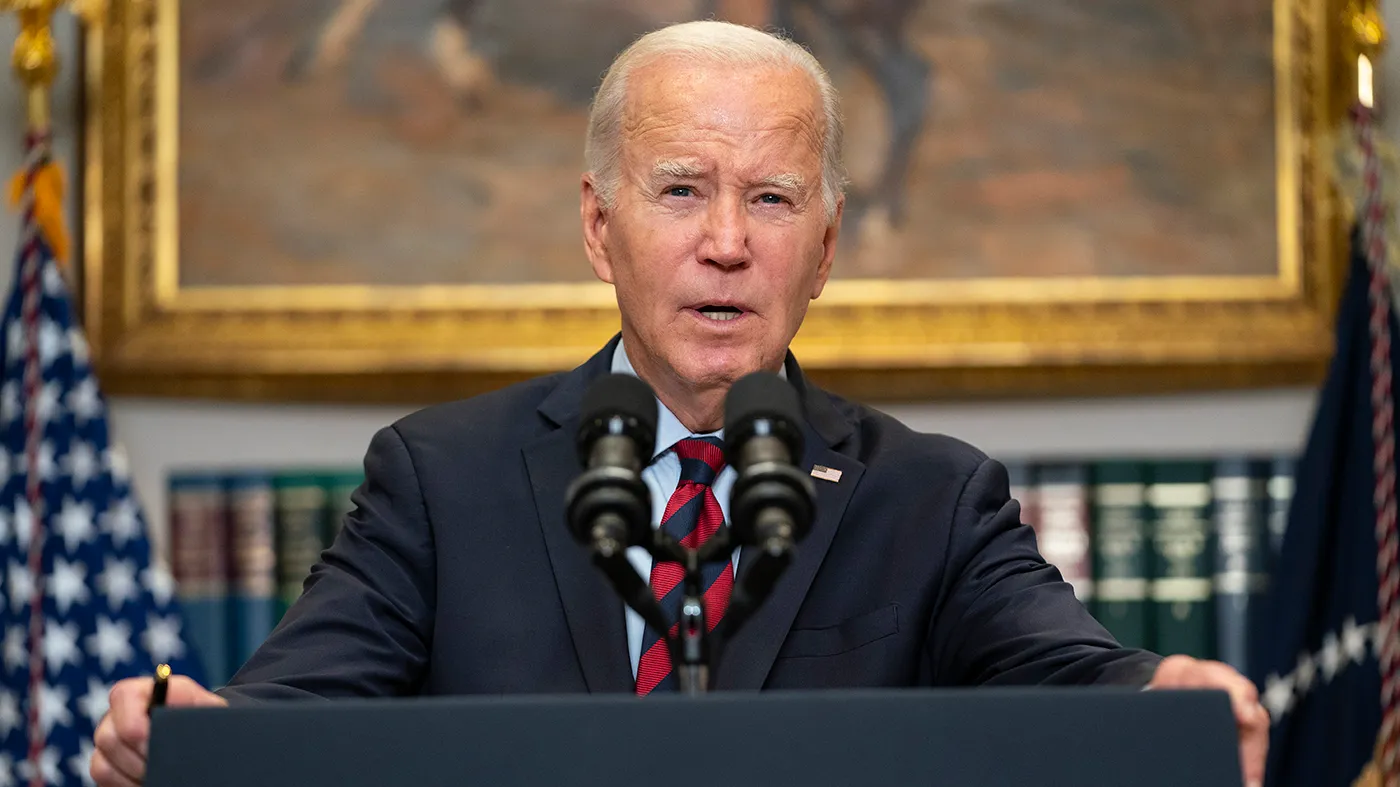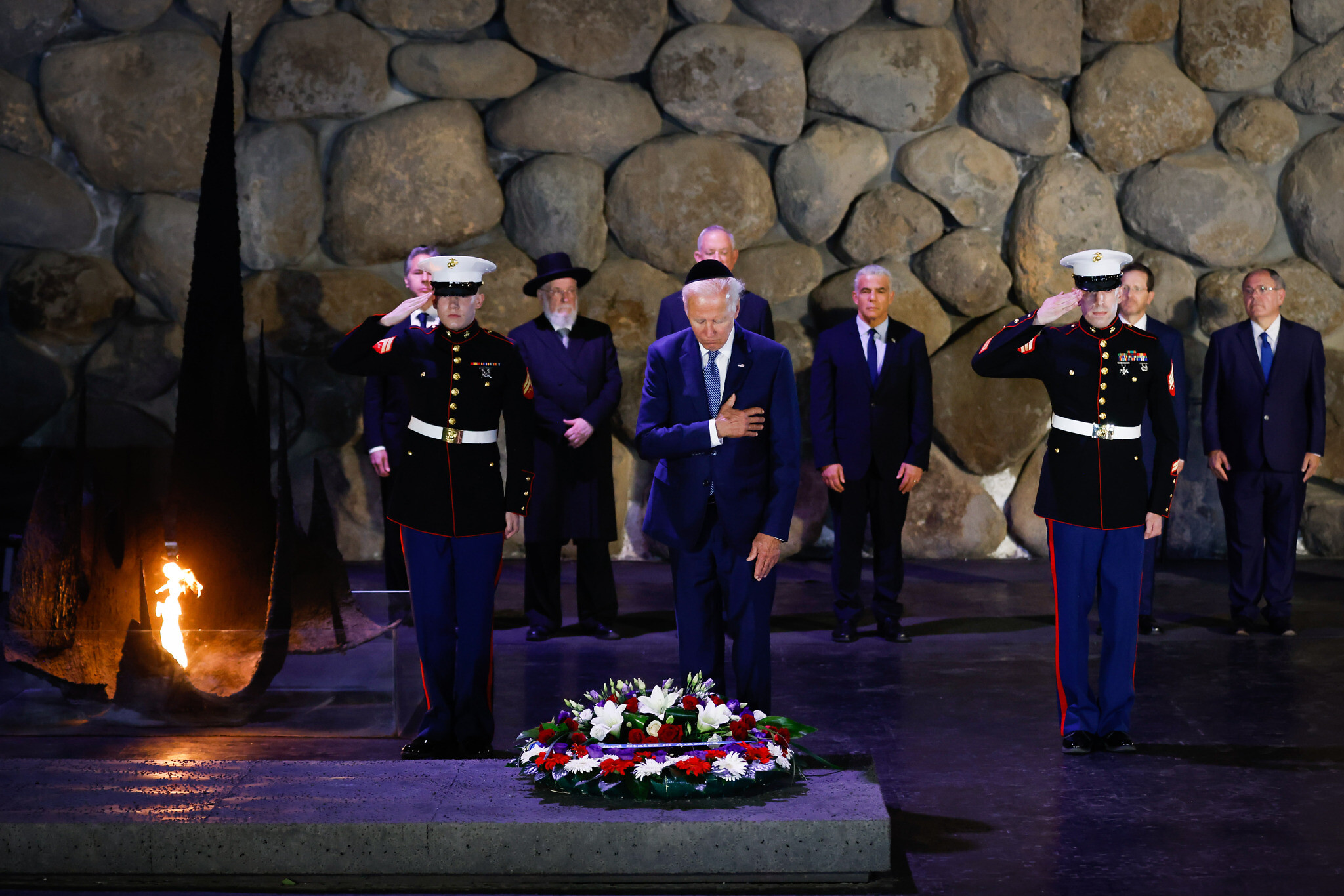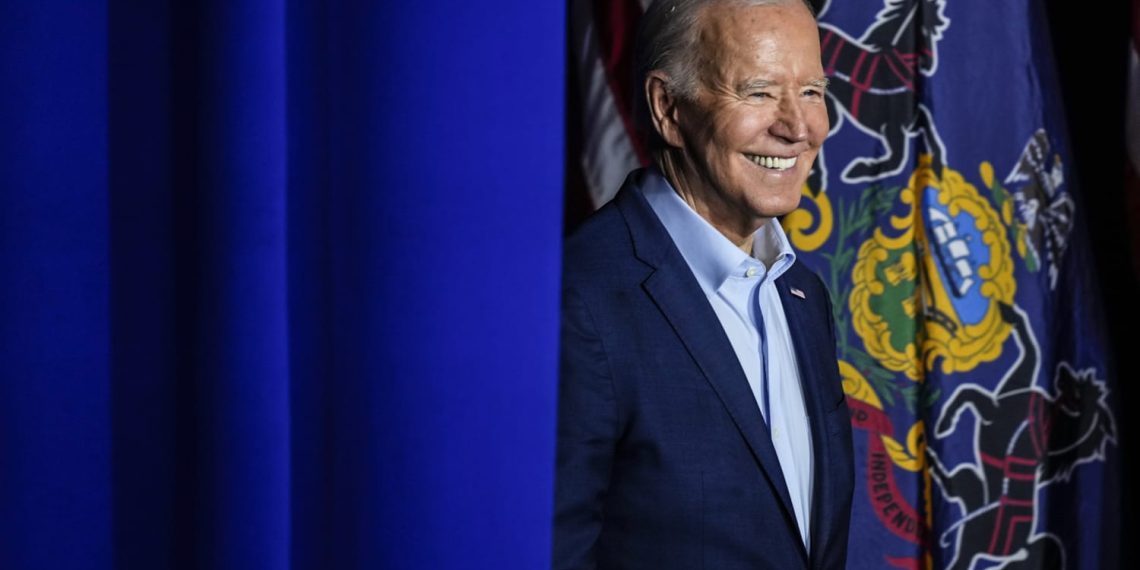President Biden is set to address antisemitism at the Holocaust Remembrance Day ceremony, a critical moment intertwined with the fate of American democracy. His words hold significance not only in honoring the past but also in shaping the future.
In Georgia, a Jewish father struggles with his political allegiance, torn between his disdain for Donald Trump and his uncertainties about supporting Biden.
This individual represents a demographic important to Biden’s re-election efforts—a group he must reconnect with to secure their votes.

Biden’s current strategy seems to target young voters through policies like student debt relief and marijuana reclassification.
While appealing to some, this approach fails to resonate with a broader spectrum of voters who crave the stability promised four years ago.
Despite legislative achievements and competent governance, the perception of chaos looms large over Biden’s administration.
Approval of Trump’s hardline immigration stance and calls for law and order underscore this sentiment. The rise in violent crime and record inflation only exacerbate the public’s anxiety and discontent.
Biden’s delayed response to campus protests further highlights his struggle to face these turbulent waters effectively.
While he eventually condemned the violence, his hesitance appeared reactionary rather than decisive leadership.

Biden must not overlook the escalating crisis at the southern border. Ignoring this issue could prove detrimental to his re-election prospects, especially as immigration remains a top concern for voters.
As Biden prepares to speak on antisemitism, he faces a delicate balancing act—acknowledging the past while addressing the pressing issues of the present.
The outcome of this speech could significantly impact his chances of securing another term in office.





